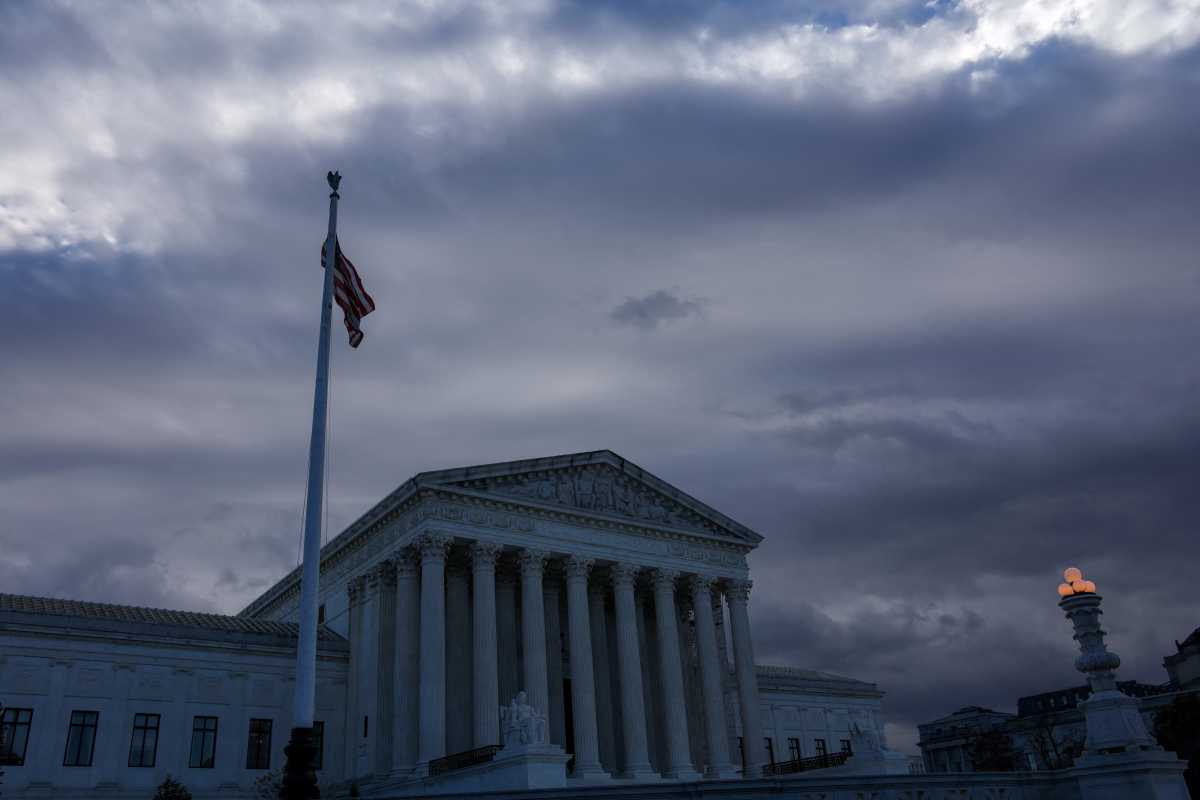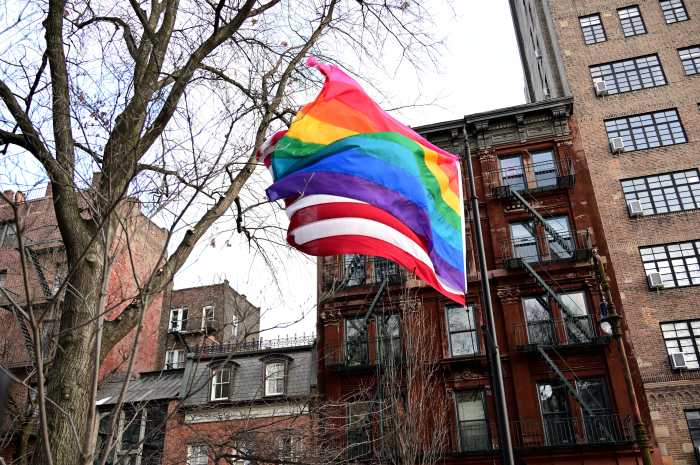The Supreme Court issued a brief opinion on Nov. 6 granting the Trump administration’s application for a “stay” of a preliminary injunction that blocked the government from misgendering trans people on passports while litigation proceeds in a challenge to the State Department’s new policy that was announced on Jan. 22.
The American Civil Liberties Union (ACLU) sued to challenge the policy change, which reversed State Department policies dating back to the 1990s that allowed transgender individuals to get passports that accurately reflect their gender identity. On Trump’s first day back in the White House, he issued Executive Order 14168, proclaiming that it was the policy of the United States that there are only two sexes, male and female, determined at conception and immutable, and ordering government agencies to adapt their policies accordingly. Two days later, the State Department announced a new policy under which every passport would identify the holder by their sex at the time of conception.
This policy was adopted without going through the procedures required by the federal Administrative Procedure Act or the Paperwork Reduction Act for changing existing policies or forms used to gather information from members of the public. The president said “do it,” and they “did it.”
The district court determined that the plaintiffs, trans people seeking new or renewal passports, were likely to win their claim that this policy change was unlawful and potentially violated the Equal Protection Clause by depriving trans people of the ability to get passports that accurately identify them, and that failing to enjoin the new policy while the case is litigated would cause irreparable harm to the plaintiffs, while staying the policy would cause no real harm to the government, other than delaying the president’s ability to unilaterally change government policy without going through the prescribed procedures.
The district court’s preliminary injunction was affirmed by the US Court of Appeals for the First Circuit. The government asked the Supreme Court to intervene to deal with this “emergency.”
The brief unsigned order issued by the Supreme Court ignores the harms suffered by the plaintiffs and exaggerates the alleged harms claimed by the government.
“Displaying passport holders’ sex at birth no more offends equal protection principles than displaying their country of birth — in both cases, the Government is merely attesting to a historical fact without subjecting anyone to differential treatment,” the court wrote. “And on this record, respondents have failed to establish that the government’s choice to display biological sex ‘lacks any purpose other than a bare desire to harm a politically unpopular group.’ Nor are respondents likely to prevail in arguing that the State Department act arbitrarily and capriciously by declining to depart from presidential rules that Congress expressly require it to follow.” The last quoted sentence referred to 22 U.S.C. Section 211a, a statute that authorizes the president to establish rules for the issuance of passports.
Justice Ketanji Brown Jackson dissented, in an opinion joined by Justices Sonia Sotomayor and Elena Kagan.
“The government seeks to enforce a questionably legal new policy immediately, but it offers no evidence that it will suffer any harm if it is temporarily enjoined from doing so,” she wrote, “while the plaintiffs will be subject to imminent, concrete injury if the policy goes into effect. The court nonetheless fails to spill any ink considering the plaintiffs, opting instead to intervene in the government’s favor without equitable justification, and in a manner that permits harm to be inflicted on the most vulnerable party.”
In her dissent, Justice Jackson referred to the evidence cited by the district court, showing how trans people whose passports misgendered them had suffered harassment at the hands of security officials at airports, and were effectively “outed” in every circumstance for which a passport is needed. This is the kind of evidence that has impressed lower court federal judges in cases challenging the refusal by states to issue drivers’ licenses reflecting the gender identity of trans individuals.
Justice Jackson went on to condemn the Supreme Court’s continued practice of granting emergency petitions by the government without any analytical explanation or consideration of traditional principals governing equitable relief.
“Such senseless sidestepping of the obvious equitable outcome has become an unfortunate pattern,” she wrote. “So, too, has my own refusal to look the other way when basic principles are selectively discarded. This court has once again paved the way for the immediate infliction of injury without adequate (or, really, any) justification. Because I cannot acquiesce to this pointless but painful perversion of our equitable discretion, I respectfully dissent.”
She pointed out that it is hardly an emergency when the State Department has been issuing passports to transgender people for 33 years showing their correct gender identity without any harm occurring to the government.
Of course, this is not the end of the case, since litigation continues in the district court where the plaintiffs seek a permanent injunction. The district court has certified the case as a class action affecting all transgender people seeking to obtain or renew passports.
The court’s brief opinion radiates ignorance of the realities of life for transgender individuals, based on the limited record of a preliminary injunction proceeding, in which the Court willfully misconstrued the detailed opinion issued by the district court explaining how transgender individuals would be harmed under this new policy. This is relevantly different from requiring that passports identity the place of birth of the holder, so the Court’s blithe minimization of the harm to transgender passport applicants appears totally misguided.
Perhaps this could be corrected if the issue came to the Supreme Court after a final ruling by the district court with detailed factual findings, to be followed by full briefing and oral argument at the Supreme Court. Only time will tell.



































